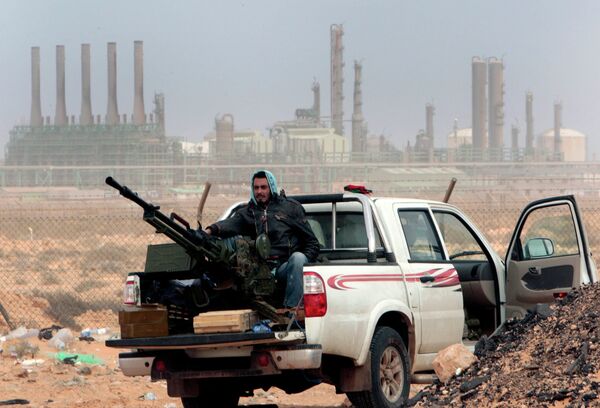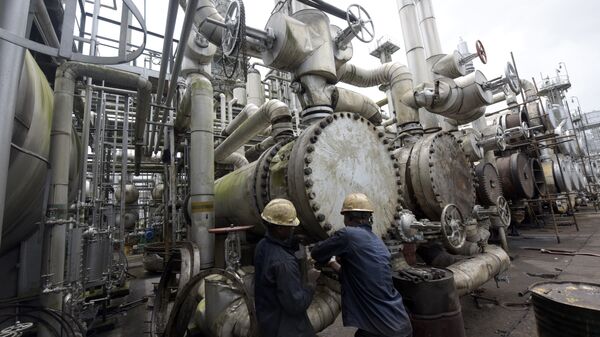Talks between 17 OPEC and non-OPEC petroleum producers aimed at agreeing upon a production freeze collapsed on April 17 after Saudi Arabia reportedly demanded that producers who were absent from the meeting, such as Iran, participate in the deal.
Despite the meeting's failure, the current daily 1.5 million barrel crude oil surplus is being curbed by outages in oil-producing countries such as Nigeria, Colombia, Libya and Iraq.
"The fact of the matter is that the oversupply in the market is very narrow," Ed Morse, head of commodities research at Citigroup, told Bloomberg.
"The world has become highly prone to disruptions of supply in vulnerable petro states."
In Colombia, attacks by guerrilla rebels have disrupted supplies, and the country's daily crude exports declined to about 622,000 barrels in March, down 14 percent from a month earlier.
Disruptions to production and transportation in Nigeria, some a result of pipeline sabotage, have caused production there to decline to 1.7 million barrels a day, the country's lowest production level since 2009.
The US Energy Information Administration (EIA) reported earlier this month that OPEC unplanned crude oil supply disruptions averaged 2.3 million barrels per day in March, 0.1 million higher compared with February.

Before the 2011 overthrow of Muammar Gaddafi, Libya produced about 1.6 million barrels a day, but it is now OPEC's smallest producer: in March, it supplied just 330,000 barrels a day.
The pipeline has now resumed operation, but production from northern fields operated by Iraq's National Oil Company is still disrupted because of a political dispute between the central government in Baghdad and the Kurdistan Regional Government.




